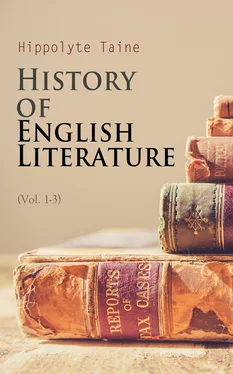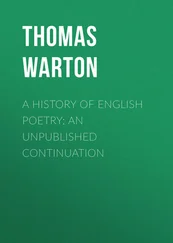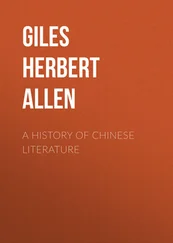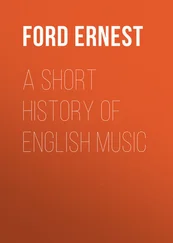Table of Contents
In this band of scholars, dreamers, and inquirers, appears the most comprehensive, sensible, originative of the minds of the age, Francis Bacon, a great and luminous intellect, one of the finest of this poetic progeny, who, like his predecessors, was naturally disposed to clothe his ideas in the most splendid dress: in this age, a thought did not seem complete until it had assumed form and color. But what distinguishes him from the others is, that with him an image only serves to concentrate meditation. He reflected long, stamped on his mind all the parts and relations of his subject; he is master of it, and then, instead of exposing this complete idea in a graduated chain of reasoning, he embodies it in a comparison so expressive, exact, lucid, that behind the figure we perceive all the details of the idea, like liquor in a fine crystal vase. Judge of his style by a single example:
"For as water, whether it be the dew of Heaven or the springs of the earth, easily scatters and loses itself in the ground, except it be collected into some receptacle, where it may by union and consort comfort and sustain itself (and for that cause, the industry of man hath devised aqueducts, cisterns, and pools, and likewise beautified them with various ornaments of magnificence and state, as well as for use and necessity); so this excellent liquor of knowledge, whether it descend from divine inspiration or spring from human sense, would soon perish and vanish into oblivion, if it were not preserved in books, traditions, conferences, and especially in places appointed for such matters as universities, colleges, and schools, where it may have both a fixed habitation, and means and opportunity of increasing and collecting itself." [384]
"The greatest error of all the rest, is the mistaking or misplacing of the last or farthest end of knowledge: for men have entered into a desire of learning and knowledge, sometimes upon a natural curiosity and inquisitive appetite; sometimes to entertain their minds with variety and delight; sometimes for ornament and reputation; and sometimes to enable them to victory of wit and contradiction; and most times for lucre and profession; and seldom sincerely to give a true account of their gift of reason, to the benefit and use of men: as if there were sought in knowledge a couch whereupon to rest a searching and restless spirit; or a terrace, for a wandering and variable mind to walk up and down with a fair prospect; or a tower of state, for a proud mind to raise itself upon; or a fort or commanding ground, for strife and contention; or a shop, for profit or sale; and not a rich storehouse, for the glory of the Creator, and the relief of man's estate." [385]
This is his mode of thought, by symbols, not by analysis; instead of explaining his idea, he transposes and translates it—translates it entire, to the smallest details, enclosing all in the majesty of a grand period, or in the brevity of a striking sentence. Thence springs a style of admirable richness, gravity, and vigor, now solemn and symmetrical, now concise and piercing, always elaborate, and full of color. [386]There is nothing in English prose superior to his diction.
Thence is derived also his manner of conceiving things. He is not a dialectician, like Hobbes or Descartes, apt in arranging ideas, in educing one from another, in leading his reader from the simple to the complex by an unbroken chain. He is a producer of conceptions and of sentences. The matter being explored, he says to us: "Such it is; touch it not on that side; it must be approached from the other." Nothing more; no proof, no effort to convince: he affirms, and does nothing more; he has thought in the manner of artists and poets, and he speaks after the manner of prophets and seers. Cogitata et visa this title of one of his books might be the title of all. The most admirable, the "Novum Organum," is a string of aphorisms—a collection, as it were, of scientific decrees, as of an oracle who foresees the future and reveals the truth. And to make the resemblance complete, he expresses them by poetical figures, by enigmatic abbreviations, almost in Sibylline verses: Idola specûs, Idola tribûs, Idola fori, Idola theatri , everyone will recall these strange names, by which he signifies the four kinds of illusions to which man is subject. [387]Shakespeare and the seers do not contain more vigorous or expressive condensations of thought, more resembling inspiration, and in Bacon they are to be found everywhere. On the whole, his process is that of the creators; it is intuition, not reasoning. When he has laid up his store of facts, the greatest possible, on some vast subject, on some entire province of the mind, on the whole anterior philosophy, on the general condition of the sciences, on the power and limits of human reason, he casts over all this a comprehensive view, as it were a great net, brings up a universal idea, condenses his idea into a maxim, and hands it to us with the words, "Verify and profit by it."
There is nothing more hazardous, more like fantasy, than this mode of thought, when it is not checked by natural and good strong sense. This common-sense, which is a kind of natural divination, the stable equilibrium of an intellect always gravitating to the true, like the needle to the pole, Bacon possesses in the highest degree. He has a pre-eminently practical, even an utilitarian mind, such as we meet with later in Bentham, and such as their business habits were to impress more and more upon the English. At the age of sixteen, while at the university, he was dissatisfied with Aristotle's philosophy, [388]not that he thought meanly of the author, whom, on the contrary, he calls a great genius; but because it seemed to him of no practical utility, incapable of producing works which might promote the well-being of men. We see that from the outset he struck upon his dominant idea; all else comes to him from this; a contempt for antecedent philosophy, the conception of a different system, the entire reformation of the sciences by the indication of a new goal, the definition of a distinct method, the opening up of unsuspected anticipations. [389]It is never speculation which he relishes, but the practical application of it. His eyes are turned not to heaven, but to earth; not to things abstract and vain, but to things palpable and solid; not to curious, but to profitable truths. He seeks to better the condition of men, to labor for the welfare of mankind, to enrich human life with new discoveries and new resources, to equip mankind with new powers and new instruments of action, His philosophy itself is but an instrument, organum , a sort of machine or lever constructed to enable the intellect to raise a weight, to break through obstacles, to open up vistas, to accomplish tasks, which had hitherto surpassed its power. In his eyes, every special science, like science in general, should be an implement. He invites mathematicians to quit their pure geometry, to study numbers only with a view to natural philosophy, to seek formulas only to calculate real quantities and natural motions. He recommends moralists to study the soul, the passions, habits, temptations, not merely in a speculative way, but with a view to the cure or diminution of vice, and assigns to the science of morals as its goal the amelioration of morals. For him, the object of science is always the establishment of an art; that is, the production of something of practical utility; when he wished to describe the efficacious nature of his philosophy by a tale, he delineated in the "New Atlantis," with a poet's boldness and the precision of a seer, almost employing the very terms in use now, modern applications, and the present organization of the sciences, academies, observatories, air-balloons, submarine vessels, the improvement of land, the transmutation of species, regenerations, the discovery of remedies, the preservation of food. The end of our foundation, says his principal personage, is the knowledge of causes and secret motions of things, and the enlarging of the bounds of human empire, to the effecting of all things possible. And this "possible" is infinite.
Читать дальше












